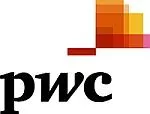Investment interest in Africa and Nigeria has continued to grow, with Africa often viewed as an investment market with the potential for significant growth and superior returns.
Africa's increased prosperity and the ease of doing business, alongside lower investment risk due to reforms in political and economic systems, improvement in financial reporting standards, as well as the need for investors to diversify away from low return markets, have been good drivers for the build-up of the interest in the continent.
According to the 2015 edition of PwC's biennial valuation methodology survey done across Africa, there has been an increase in deal activity across the continent. In 2012, around 12% of the survey respondents had considered more than 10 transactions on the African continent. This number increased to 39% in 2014.
The survey shows that a wider range of countries are being considered and the level of activity by industry is much wider than before. Ghana, Nigeria, Tanzania, Mauritius and Zambia are considered the top five countries of choice outside of potential investors' home markets. However, the next tier of 10 countries recorded only marginally lower scores than the top 5 countries in the survey, demonstrating investor interest in a wide variety of countries across West, East and Southern Africa.
West Africa appears to be the investment destination of choice for non-African investors as the region recorded the highest number of valuations performed for non- African investors.
The financial services sector remains a key focus area for all markets. In addition, a wide variety of industries enjoy some prominence including retail and consumer goods in West Africa, hospitality in the East and Mining in Southern Africa.
The amount and propensity of investment in capital projects in Africa both by the public and private sectors have made the valuation of infrastructure projects an area of growing importance. Infrastructure assets have a unique set of characteristics that set them apart from traditional equity or debt instruments, requiring special considerations. The expected growth in global infrastructure spending, which according to a recent PwC research, is expected to grow from $4 trillion per year in 2012 to more than $9 trillion per year by 2025, makes it even more attractive.
However, there are significant challenges in performing valuations across Africa.
Emerging markets all have their own unique valuation challenges. Large gaps in buyer and seller expectations and worse than expected performance are some of the issues that potential investors face in emerging markets. This is one of the reasons why PwC Corporate Finance launched the PwC survey.
The root causes of valuation issues in emerging markets resulting in these problems may include:
- Uncertainty about future growth, market demand, distribution channels to be used and future actions of competitors. This could be compounded by a lack of research data on potential markets, especially at an industry level.
- Few comparable listed companies that can form a base for valuation analysis and limited liquidity and breadth in local stock markets. When there are not sufficient comparable companies in the same industry and country, most respondents would still use the market approach, but would expand their sample to include other countries and/ or other industries. When expanding into other countries, further subjectivity is added to the valuation as country risk adjustments are often required for valuations, using multiples derived from, for example, developed markets abroad.
- Increased investor interest in emerging markets, resulting in significant competition for the few good assets in these markets. This drives up the transaction price of these assets as sellers now have several alternatives available to them.
In Nigeria and the rest of West Africa, the income approach remains the most popular approach. However, valuation practitioners seldom use only one approach to valuing businesses. Other approaches used include the market approach (market multiple approach) and the net assets approach.
The current edition of the PwC Survey, which represents the views of several valuation practitioners across Africa, provides further information for investors to consider when valuing opportunities on the African continent.
Deal activity in Africa continues to gain momentum. As formal markets mature investment analysis will become easier and this in turn is likely to spur continued growth in deal activity.
The content of this article is intended to provide a general guide to the subject matter. Specialist advice should be sought about your specific circumstances.

